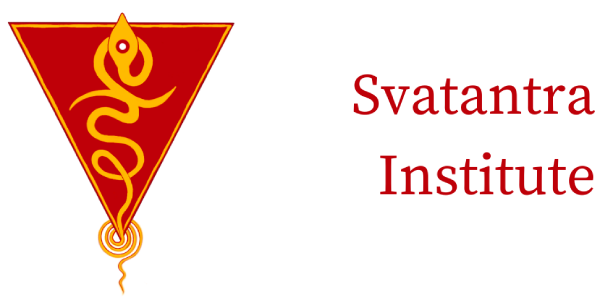When Kavitha Amma found me I looked at the world through a half empty cup. I was deeply involved in activism work and I remember a friend sharing that oppression would never end in our lifetime, but it was our duty to fight regardless. I looked at the world from a losing standpoint and I was determined to die fighting and losing the battle against racism, sexism and all the other ways that people were harmed by systems of oppression. I clung tightly to my half empty cup. I made an identity out of it and moved through the world angry, judgemental and arrogant.
Kavitha Amma encouraged me to focus on myself and to see how I was perpetuating violence by pointing the finger at others. She took my hand and guided me to turn inward towards my self-image of an activist, someone who “fought for justice” and someone who sought out vidyā, knowledge or wisdom, instead of embodying it. I took a break from activism to understand myself better because, as Kavitha Amma pointed out to me, I can’t be a source of compassion in the world when I am stuck in an us vs. them mentality, which is inherently violent.
As I stepped away from protests, call outs and cancel culture I began to look at myself with radical honesty. As I peeled away self-images, healed traumas that were keeping me stuck and got to know myself better, my cup slowly became half full. I began to see the beauty in the world again. I began to see that I wasn’t the queen of the universe who knew how everyone should act and how the world should run. I began to trust that even when things were painful I didn’t know the whole story, and that Devī knew what she was doing even if I didn’t understand. A previous teacher used to tell me, “Everything is ok in the end, and if it isn’t ok, it isn’t the end.” Even though oppression and violence were still happening, I trusted that there was something bigger at play I couldn’t grok.
Recently in Satsaṅga and again in the Mahāvidyās retreat Kavitha Amma talked about whether the cup is half empty or half full the problem is having a cup at all! I never looked at the cup before, and it blew my mind. When my cup was half empty, I was stuck in doubt and fear. I doubted that the world or humanity would ever change in a way I wanted it to change and I also feared that reality. When my cup was half full, I was stuck in hope and fear. I hoped that I would understand the meaning of something I didn’t understand, and that would put me at ease so I would feel content. Both of these perspectives kept me stuck in linear time thinking about the future and also in fear of what might happen. Will my doubt come true? Will my hope come true? There was a dependency on some outcome when I grasped the cup to validate the doubt or hope.
When Kavitha Amma talked about not having the cup at all, I didn’t know how I could get rid of the cup I had held for my entire life. Who would I be without the cup? In the Mahāvidyās retreat, Christopher Wallis (Hareesh) talked about gratitude, and it struck me. What if I was grateful for any experience I had? Not gratitude because I “know” things will work out in the end or for fulfilling the self-image of fighting against something, but simply gratitude for having the direct experience I am having without any need for an outcome.
One of the many teachings I hold dear is: everything is in my favor. I realized through this teaching that I attached hope to it, believing that everything being in my favor meant that eventually everything would work out according to the meaning I made of a situation. For example, when I am in pain, if I focus on this teaching it can take me into the future when I will learn some powerful lesson from going through it. I am learning through my misunderstanding of this teaching that hope and fear dissociate me from my direct experience by projecting some idealized outcome.
What if I don’t know it will work out? What if it all goes to hell? Can I still trust that it is in my favor even when I don’t know the outcome or there is no meaning to make? Dropping the cup brings up a sense of free fall into Dhūmāvatī’s void. It takes away the self-image of a person who looks at the world through a half empty or half full cup. There is no perspective when I don’t have a cup. It is just me and the direct experience that is happening in the eternal Now, and as Kālī chops off my head I free fall from fear into freedom.
Image: Design created using Canva.
